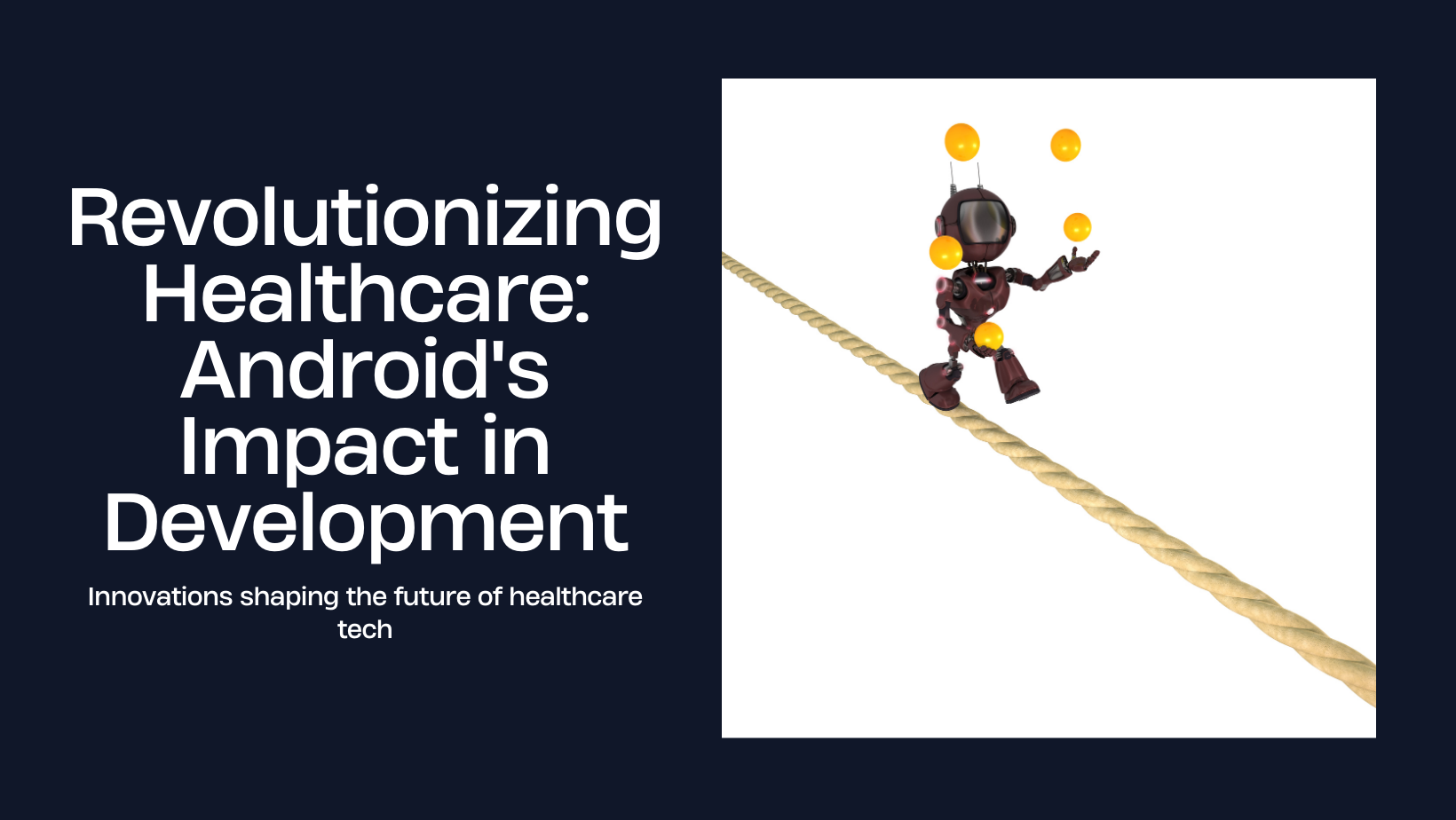Android development is poised to revolutionize healthcare, offering innovative solutions that enhance patient care, streamline workflows, and improve overall efficiency. This blog explores the evolving landscape of Android app development in healthcare, highlighting trends, advancements, and future opportunities for developers and healthcare providers alike.
Transforming Healthcare with Android Apps
An introduction to the transformative impact of Android apps in the healthcare sector:
- Patient Engagement: Apps facilitate better patient-provider communication, remote monitoring, and personalized care plans.
- Operational Efficiency: Streamline administrative tasks, scheduling, and resource allocation within healthcare facilities.
1. Emerging Trends in Android Development for Healthcare
Exploring current and emerging trends shaping the future of Android apps in healthcare:
- Telemedicine and Remote Monitoring: Rise of telehealth apps enabling virtual consultations and real-time patient monitoring.
- Health IoT Integration: Android apps leveraging IoT devices for continuous health data collection and analysis.
- AI and Machine Learning: Integration of AI-driven features for predictive analytics, diagnostics, and treatment planning.
2. Mobile Health (mHealth) Applications
The role of Android apps in promoting mobile health initiatives:
- Chronic Disease Management: Apps supporting chronic disease management through medication reminders, symptom tracking, and lifestyle coaching.
- Emergency Response Systems: Mobile apps for emergency alerts, medical assistance, and location-based services during critical situations.
3. Security and Privacy Considerations
Ensuring data security and patient privacy in Android healthcare apps:
- HIPAA Compliance: Adherence to healthcare data regulations and standards to protect sensitive patient information.
- Encryption and Authentication: Implement robust security measures like data encryption and two-factor authentication to safeguard user data.
4. Future Challenges and Opportunities
Anticipated challenges and growth opportunities for Android development in healthcare:
- Interoperability: Integration with existing healthcare systems and interoperability standards.
- User Experience (UX) Design: Designing intuitive interfaces for diverse user groups, including patients, caregivers, and healthcare professionals.
- Regulatory Compliance: Navigating regulatory frameworks and ensuring app compliance with healthcare industry guidelines.
Conclusion
Android development is set to play a pivotal role in shaping the future of healthcare, offering innovative solutions that enhance patient outcomes and operational efficiency. By embracing emerging trends, prioritizing security, and addressing regulatory requirements, developers can leverage Android platforms to create impactful healthcare applications that drive positive change in the industry.







